 W
WThe Allied occupation of Japan at the end of World War II was led by the United States, whose then-President Harry S. Truman appointed General Douglas MacArthur as the Supreme Commander for the Allied Powers, with support from the British Commonwealth. Unlike in the occupation of Germany, the Soviet Union was allowed little to no influence over Japan. This foreign presence marks the only time in Japan's history that it has been occupied by a foreign power. At MacArthur's insistence, Emperor Hirohito remained on the imperial throne. The wartime cabinet was replaced with a cabinet acceptable to the Allies and committed to implementing the terms of the Potsdam Declaration, which among other things called for the country to become a parliamentary democracy. Under MacArthur's guidance, the Japanese government introduced sweeping social reforms and implemented economic reforms that recalled American "New Deal" priorities of the 1930s under President Roosevelt. The Japanese constitution was comprehensively overhauled and the Emperor's theoretically-vast powers, which for many centuries had been constrained by conventions that had evolved over time, became strictly limited by law. The occupation, codenamed Operation Blacklist, was ended by the San Francisco Peace Treaty, signed on September 8, 1951, and effective from April 28, 1952, after which Japan's sovereignty – with the exception, until 1972, of the Ryukyu Islands – was fully restored.
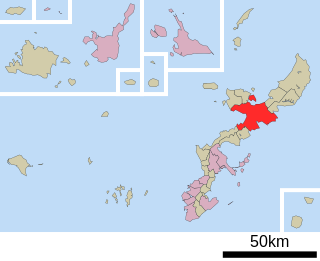 W
WThe 1945 Katsuyama killing incident refers to the murder of three African-American United States Marines in Katsuyama near Nago, Okinawa after the Battle of Okinawa in June 1945. Residents of Katsuyama had reportedly killed the three Marines for their repeated rape of village women during occupation of Okinawa and hidden their bodies in a nearby cave out of fear for retaliation. The Katsuyama incident was kept secret until 1997 and the bodies and identities of the Marines were discovered.
 W
WThe 1946 Nankai earthquake was a great earthquake in Nankaidō, Japan. It occurred on December 21, 1946, at 04:19 JST. The earthquake measured between 8.1 and 8.4 on the moment magnitude scale, and was felt from Northern Honshū to Kyūshū. It occurred almost two years after the 1944 Tōnankai earthquake, which ruptured the adjacent part of the Nankai megathrust.
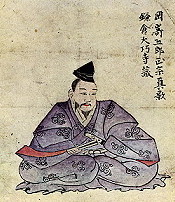 W
WMasamune (正宗), also known as Gorō Nyūdō Masamune , is widely recognized as Japan's greatest swordsmith. He created swords and daggers, known in Japanese as tachi and tantō respectively, in the Soshu tradition. No exact dates are known for Masamune's life. It is generally agreed that he made most of his swords between 1288 and 1328. Some stories list his family name as Okazakii, but some experts believe this is a fabrication to enhance the standing of the Tokugawa family.
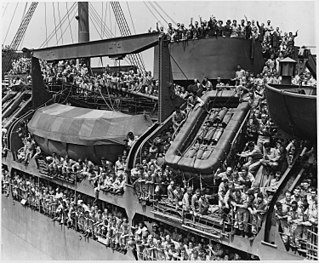 W
WThe Demobilization of United States armed forces after the Second World War began with the defeat of Germany in May 1945 and continued through 1946. The United States had more than 12 million men and women in the armed forces at the end of World War II of whom 7.6 million were stationed abroad. The American public demanded a rapid demobilization and soldiers protested the slowness of the process. Military personnel were returned to the United States in Operation Magic Carpet. By June 30, 1947, the number of active duty soldiers, sailors, Marines, and airmen in the armed forces had been reduced to 1,566,000.
 W
WDilemma in Japan is a non-fiction book written by Andrew Roth during World War II, and it was first published in the United States in September 1945. In Dilemma In Japan, Andrew Roth warns of the threat of the Zaibatsu, and so-called "moderates" to post-war Japan. Roth describes how the Occupation should treat Hirohito, and cites Hirohito's war responsibility, and the need for him to be put on trial as a war criminal.
 W
WZhang Dinghuang, also known as Zhang Fengju was born in Nanchang. He was an author, literary critic, and translator, and expert in antique manuscripts (古迹文物). Zhang was a supporting but key figure of the rich 20th c Chinese literary movements.
 W
WThe Dodge Line was a financial and monetary contraction policy drafted by Joseph Dodge for Japan to gain economic independence after World War II. It was announced on March 7, 1949.
 W
WJoseph Morrell Dodge was a chairman of the Detroit Bank, now Comerica. He later served as an economic adviser for postwar economic stabilization programs in Germany and Japan, headed the American delegation to the Austrian Advisory commission, and worked as President Dwight D. Eisenhower's director of the Bureau of the Budget.
 W
WEmbracing Defeat: Japan in the Wake of World War II is a history book written by John W. Dower and published by W. W. Norton & Company in 1999. The book covers the difficult social, economic, cultural and political situation of Japan after World War II and the Occupation of Japan by the Allies between August 1945 and April 1952, delving into topics such as the administration of Douglas MacArthur, the Tokyo war crimes trials, Hirohito's controversial Humanity Declaration and the drafting of the new Constitution of Japan.
 W
WBonner Frank Fellers was a US Army officer who served during World War II as military attaché and director of psychological warfare. He is notable as the military attaché in Egypt whose extensive transmissions of detailed British tactical information were intercepted by Axis agents and passed to German Field Marshal Erwin Rommel for over six months, which contributed to disastrous British defeats at Gazala and Tobruk in June 1942. He was considered a protégé of General Douglas MacArthur.
 W
WThe 1948 Fukui earthquake occurred in Fukui Prefecture, Japan. The magnitude 6.8 quake struck at 5:13:31 p.m.(JDT) on June 28. The strongest shaking occurred in the city of Fukui, where it was recorded as 6 on the Japan Meteorological Agency seismic intensity scale. The shock occurred near the town of Maruoka.
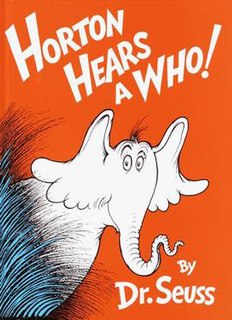 W
WHorton Hears a Who! is a children's book written and illustrated by Theodor Seuss Geisel under the pen name Dr. Seuss. It was published in 1954 by Random House. This book tells the story of Horton the Elephant and his treacherous adventures saving Whoville, a tiny planet located on a small speck of dust, from the evil animals who mock him. These animals attempt to steal and burn the speck of dust, so Horton goes to great lengths to save Whoville from being incinerated. The book is written in the typical Dr. Seuss rhyme pattern.
 W
WThe Japanese Instrument of Surrender was the written agreement that formalized the surrender of the Empire of Japan, marking the end of hostilities in World War II. It was signed by representatives from the Empire of Japan, the United States of America, the Republic of China, the United Kingdom of Great Britain and Northern Ireland, the Union of Soviet Socialist Republics, the Commonwealth of Australia, the Dominion of Canada, the Provisional Government of the French Republic, the Kingdom of the Netherlands, and the Dominion of New Zealand. The signing took place on the deck of USS Missouri in Tokyo Bay on September 2, 1945.
 W
WKumazawa Hiromichi , also known as the "Kumazawa emperor," was a Japanese businessman and Buddhist priest from Nagoya who publicly disputed the legitimacy of Emperor Hirohito's bloodline in the period shortly after the end of the Second World War. He claimed to be the 19th direct descendant of Emperor Go-Kameyama.
 W
WThe Rare Book Preservation Society (文献保存同志会) was founded in 1940 by Zheng Zhenduo (郑振铎), Zhang Shouyong (张寿镛), He Bingsong (何炳松), Zhang Yuanji (张元济), and Zhang Fengju (张凤举) for the purpose of secretly acquiring and preserving rare books and manuscripts in the Shanghai Jiangnan region. These cultural assets have been accumulated by a number of famous private libraries some over 1,000 years.
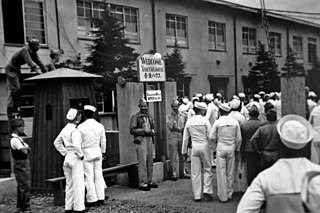 W
WThe Recreation and Amusement Association (RAA) was the largest of the organizations established by Japanese authorities to provide organized prostitution to prevent rapes and sexual violence by Allied occupation troops on the general population, and to create other leisure facilities for occupying Allied troops immediately following World War II. The RAA "recruited" 55,000 women and was short-lived.
 W
WMajor General Josef Robert Sheetz (1895–1992) was an American military commander during World War II, who served as Assistant Chief of Staff of the War Department in 1941–42. Sheetz is particularly noted for his command of the 98th Artillery Division in the Battle of Okinawa, and his involvement in the early years of the post-war American Occupation of Okinawa.
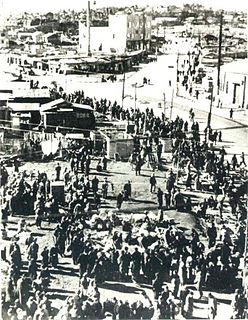 W
WThe Shibuya incident was a violent confrontation which occurred in June 1946 between rival gangs near the Shibuya Station in Tokyo, Japan. The years after World War II saw Japan as a defeated nation and the Japanese people had to improvise in many aspects of daily life. In the chaos of the post-war recovery large and very lucrative black markets opened throughout Japan. Various gangs fought for control over them. There were also many non-Japanese "third nationals" in post-war Japan. These "third nationals" or "third-country people" were former subjects of the Empire of Japan whose citizenship then transferred to other countries like China and Korea. The Shibuya incident involved former Japanese citizens from the Japanese province of Formosa fighting against native Japanese Yakuza gangs. After the fight, the Chinese nationalist government stepped forward to defend the Formosans.
 W
WThe Shipping Control Authority for the Japanese Merchant Marine (SCAJAP) was an organization established by Allied forces in the occupation of Japan after the end of World War II.
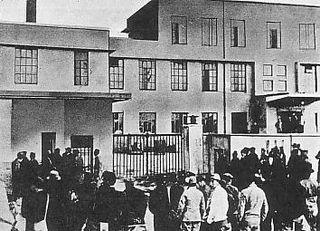 W
WSugamo Prison was located in the district of Ikebukuro, which is now part of the Toshima ward of Tokyo, Japan.
 W
WThe Supreme Commander for the Allied Powers (SCAP) was the title held by General Douglas MacArthur during the Allied occupation of Japan following World War II. It issued SCAP Directives to the Japanese government, aiming to suppress its "militaristic nationalism". The position was created at the start of the occupation of Japan on August 14, 1945.
 W
WThe surrender of Imperial Japan was announced by Japanese Emperor Hirohito on August 15 and formally signed on September 2, 1945, bringing the hostilities of World War II to a close. By the end of July 1945, the Imperial Japanese Navy (IJN) was incapable of conducting major operations and an Allied invasion of Japan was imminent. Together with the British Empire and China, the United States called for the unconditional surrender of the Japanese armed forces in the Potsdam Declaration on July 26, 1945—the alternative being "prompt and utter destruction". While publicly stating their intent to fight on to the bitter end, Japan's leaders were privately making entreaties to the publicly neutral Soviet Union to mediate peace on terms more favorable to the Japanese. While maintaining a sufficient level of diplomatic engagement with the Japanese to give them the impression they might be willing to mediate, the Soviets were covertly preparing to attack Japanese forces in Manchuria and Korea in fulfillment of promises they had secretly made to the United States and the United Kingdom at the Tehran and Yalta Conferences.
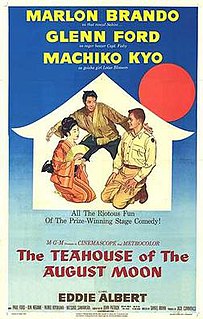 W
WThe Teahouse of the August Moon is a 1956 American comedy film directed by Daniel Mann and starring Marlon Brando. It satirizes the U.S. occupation and Americanization of the island of Okinawa following the end of World War II in 1945.
 W
WThe Women's Auxiliary Service (Burma) also known as the Chinthe Women because of the mythological creature that formed their badge. The unit was formed on 16 January 1942 and disbanded in 1946. They were a 250 strong group of British and Australian women who manned Mobile Canteens for the troops of Burma Command in World War II. They were founded and led by Mrs Ninian Taylor, who was granted the rank of Major and her services were an OBE for her services